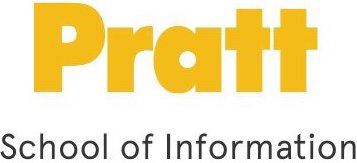Teaching
My teaching is guided by a commitment to provide students with an enriched, student-centered learning environment. My goal is to design learning environments that are adaptive to the personal interests and individual life situations of students while still maintaining a clear sight on a set of learning objectives and professional outcomes for the student. In recognition of my teaching success, I was presented with the 2012 ALISE-Pratt-Severn Faculty Innovation Award, an award for innovation in teaching in Library and Information Science programs.
INFO 601 — Foundations of Information
This foundational course focuses on the intersection of people, information, and technology and the theoretical and conceptual foundations of the information field. Students will be introduced to ideas and concepts that will inform future specializations in their course of study and provide them with concrete strategies for ongoing professional growth and development in their area of interest.
INFO 608 — Human Information Interaction
Human Information Interaction (HII) investigates how people interact with information in various contexts. The course introduces multidisciplinary theories and methods for understanding human relationships with information and technology, and prepares students to analyze, design, and improve information products and services. This is a highly interactive course where students routinely lead class discussions and conduct real-world research projects.
INFO 673 — Literacy and Instruction
This course focuses on teaching and learning in library settings. Examines literacy theories, including critical literacy, digital literacy, media literacy, information literacy and transliteracy. Explores the implementation of literacy-related programs in public libraries, academic libraries, archives, museums and other cultural institutions with a focus on assessing patron needs and using culturally relevant pedagogy.
INFO 676 — Programming, Services, and Resources for Early Childhood
This course explores the specialized skills and knowledge needed to design and develop library programs, services, and resources for infants and young children (0-8 years). The course will follow the literacy continuum, from language development through to independent reading and writing, with a special focus on the first three years of life, early literacy, and the role of family and community. The course will interest students who want to work with young people in different contexts and need specialized knowledge of early childhood, the social dynamics of families, and the early education environment.
INFO 678 — Growing Up Digital
This course investigates digital technology in young peoples' lives. The goals for this course are for students to be able to discuss in a critical manner the key issues and current research surrounding technology in the lives of children and youth (birth to 18 years) and to apply their learning to the design of digital experiences for young people.
INFO 681 — Community Building and Engagement
This course examines the notion of community within cultural heritage institutions such as the public library and the museum. Particular emphasis is placed on community building, social advocacy, and activism through the use of community informatics. Topics include outreach to diverse population, including families, children and youth, and the hard-to-reach; data sources, user studies, and participatory methods; community partnerships; digital identity and information ecologies, social media adoption and use as a tool for communication; technology in service to culture, community, and democracy; and evaluation of community engagement.

